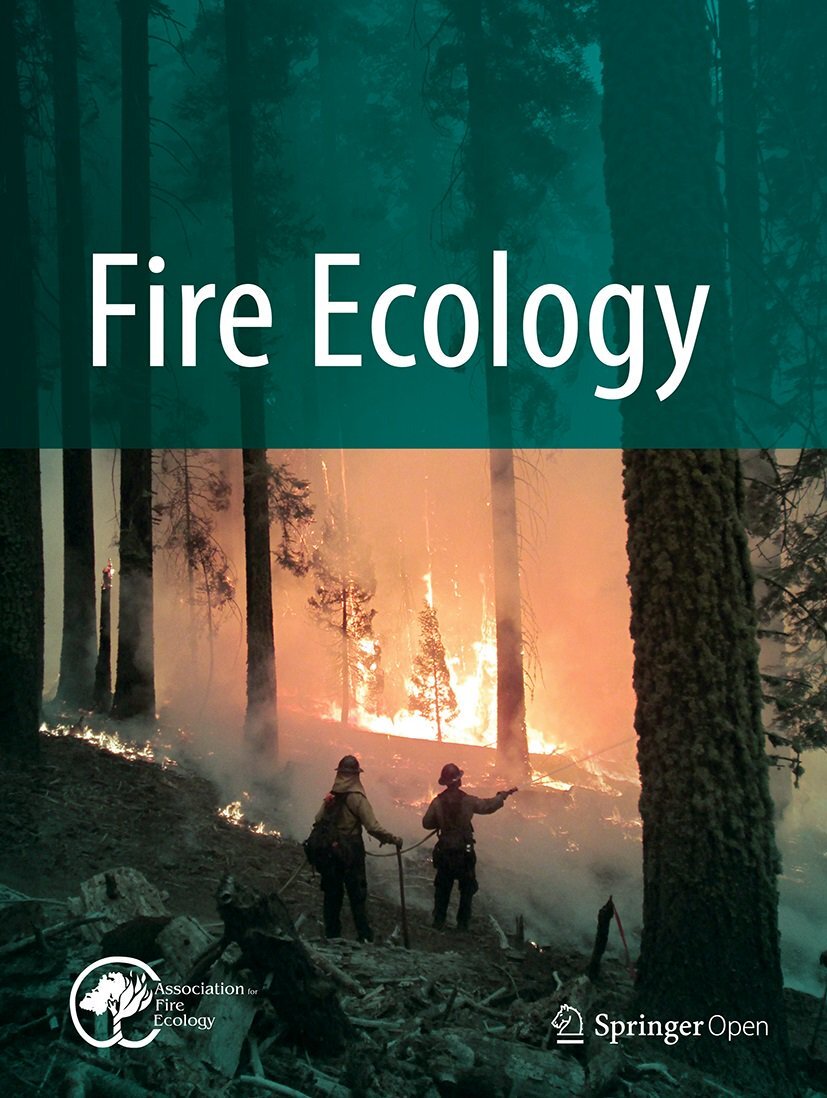评估全球火灾机制的变化
IF 5
3区 环境科学与生态学
Q1 ECOLOGY
引用次数: 0
摘要
全球人类足迹已从根本上改变了野火机制,对人类健康、生物多样性和气候造成了严重后果。然而,要预测土地利用、管理和气候变化之间的长期相互作用将如何影响火灾行为仍然十分困难,这也是可持续管理方面的一个关键知识缺口。我们通过专家评估,综合了 99 位野火研究人员对过去和未来火灾机制的看法。我们要求对从全新世开始到 2300 年的火灾发生频率、类型和影响进行定量和定性评估。受访者表示,至少从公元前约 12000 年开始,人类就对野火产生了一些直接影响,尽管在公元前约 5000 年之前,对于大多数研究地区而言,自然气候变异仍是火系变化的主要驱动力。研究结果表明,与全新世的其他时期相比,过去 250 年间火灾变化的频率增加了十倍,这首先与土地利用的加强和扩大有关,其次与人为气候变化有关。展望未来,除草原生态系统外,所有生物群落的火灾发生频率、严重程度和规模都将加剧。不同生物群落的火灾机制对气候的敏感性不同,但在所有生物群落中,火灾机制发生变化的可能性随着气候变暖程度的增加而增加。据预测,在较高的排放情景下,大多数生物群落的生物多样性、碳储存和其他生态系统服务都会减少。我们提出了在新出现的火灾机制下适应和缓解的建议,同时认识到在较高排放情景下管理方案受到限制。在过去两个世纪中,人类对野火机制的影响与日俱增。土地和火灾管理策略应考虑从过去的火灾中获得的视角,但由于人类对植物群落、气候和其他因素前所未有的破坏,很可能出现新的火灾行为。除非积极减缓气候变化,否则未来的火灾机制很可能会降低关键的生态系统服务。专家评估是对经验数据和建模的补充,为火灾科学提供了更广阔的视角,为决策制定和未来研究重点提供依据。本文章由计算机程序翻译,如有差异,请以英文原文为准。
Assessing changes in global fire regimes
The global human footprint has fundamentally altered wildfire regimes, creating serious consequences for human health, biodiversity, and climate. However, it remains difficult to project how long-term interactions among land use, management, and climate change will affect fire behavior, representing a key knowledge gap for sustainable management. We used expert assessment to combine opinions about past and future fire regimes from 99 wildfire researchers. We asked for quantitative and qualitative assessments of the frequency, type, and implications of fire regime change from the beginning of the Holocene through the year 2300. Respondents indicated some direct human influence on wildfire since at least ~ 12,000 years BP, though natural climate variability remained the dominant driver of fire regime change until around 5,000 years BP, for most study regions. Responses suggested a ten-fold increase in the frequency of fire regime change during the last 250 years compared with the rest of the Holocene, corresponding first with the intensification and extensification of land use and later with anthropogenic climate change. Looking to the future, fire regimes were predicted to intensify, with increases in frequency, severity, and size in all biomes except grassland ecosystems. Fire regimes showed different climate sensitivities across biomes, but the likelihood of fire regime change increased with higher warming scenarios for all biomes. Biodiversity, carbon storage, and other ecosystem services were predicted to decrease for most biomes under higher emission scenarios. We present recommendations for adaptation and mitigation under emerging fire regimes, while recognizing that management options are constrained under higher emission scenarios. The influence of humans on wildfire regimes has increased over the last two centuries. The perspective gained from past fires should be considered in land and fire management strategies, but novel fire behavior is likely given the unprecedented human disruption of plant communities, climate, and other factors. Future fire regimes are likely to degrade key ecosystem services, unless climate change is aggressively mitigated. Expert assessment complements empirical data and modeling, providing a broader perspective of fire science to inform decision making and future research priorities.
求助全文
通过发布文献求助,成功后即可免费获取论文全文。
去求助
来源期刊

Fire Ecology
ECOLOGY-FORESTRY
CiteScore
6.20
自引率
7.80%
发文量
24
审稿时长
20 weeks
期刊介绍:
Fire Ecology is the international scientific journal supported by the Association for Fire Ecology. Fire Ecology publishes peer-reviewed articles on all ecological and management aspects relating to wildland fire. We welcome submissions on topics that include a broad range of research on the ecological relationships of fire to its environment, including, but not limited to:
Ecology (physical and biological fire effects, fire regimes, etc.)
Social science (geography, sociology, anthropology, etc.)
Fuel
Fire science and modeling
Planning and risk management
Law and policy
Fire management
Inter- or cross-disciplinary fire-related topics
Technology transfer products.
 求助内容:
求助内容: 应助结果提醒方式:
应助结果提醒方式:


